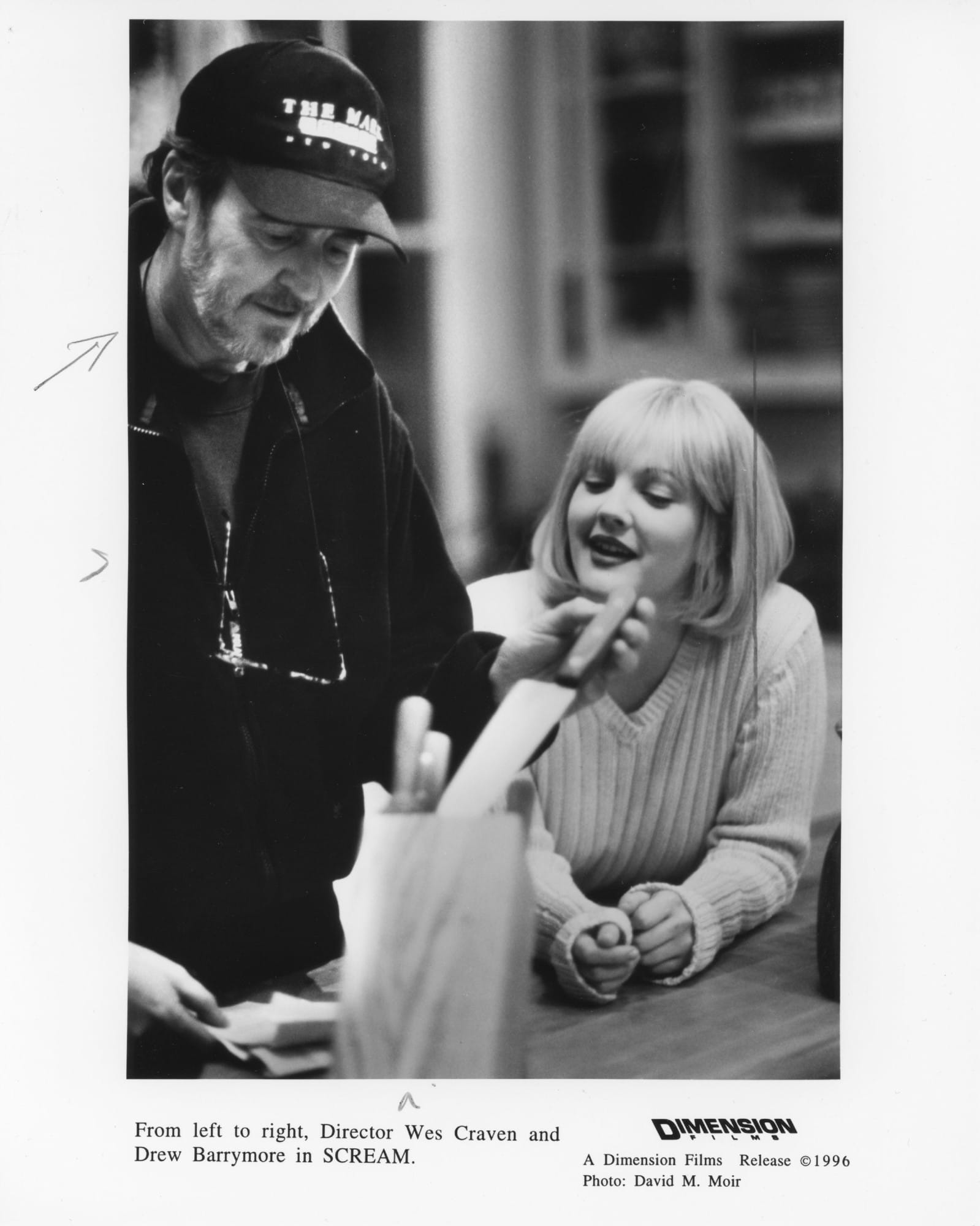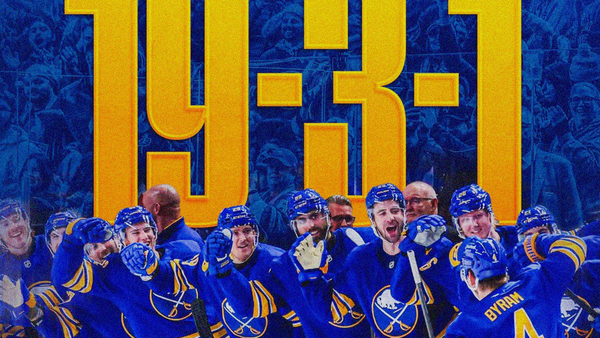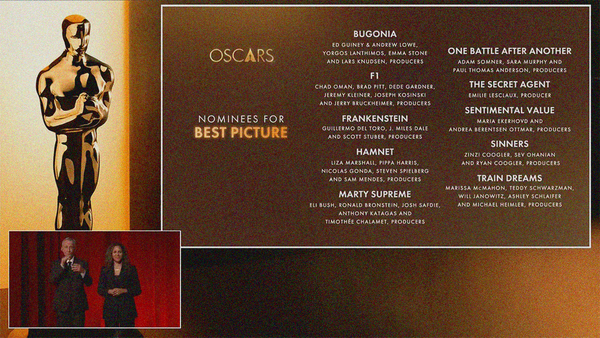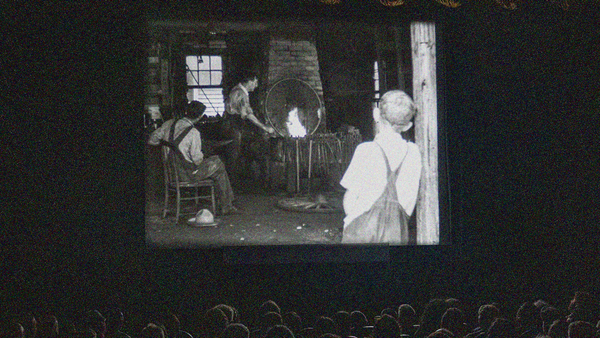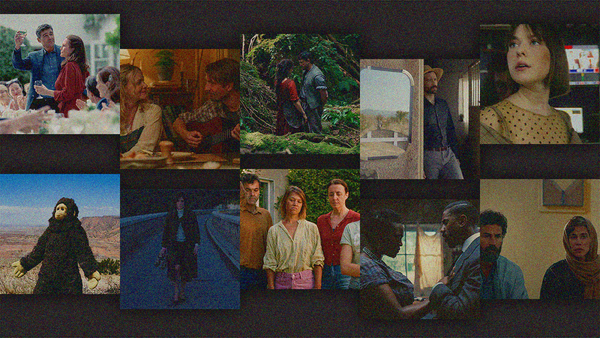Week Ending 7/25/25
Fantasia 2025 - Week Two
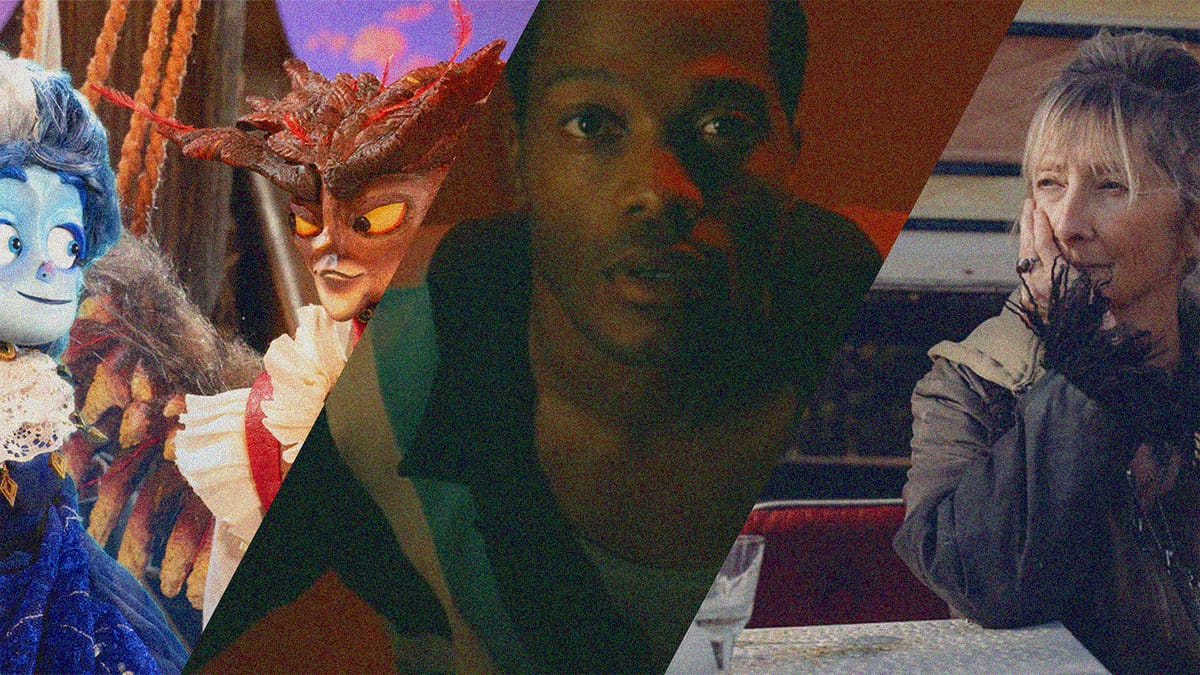
Well ... I might have gone a bit overboard this week.
I chose to not start a new season of television so I could fit in more Fantasia screeners and ended up reviewing eight in seven days. More than that, I ended up also reviewing two new releases instead of just one (I never heard back about an Oh, Hi! screener, so I also asked for Shoshana only to finally receive the former without warning two days ago). Add a couple quick hits for The Old Guard 1 & 2 and this issue is fit to burst.
The good thing: I pretty much enjoyed it all. And, now that I got my confirmation for TIFF 2025 accreditation, writing so much now should be good preparation for September chaos. Now I must decide how crazy I'll make next week.
I currently have four more Fantasia titles and one new release (The Sparrow in the Chimney) to watch for August 1. But I also have Posterized to write for The Film Stage. So, unless some of Fantasia's yet-to-be-announced award-winners are accessible, I might just stick to those and be done.

I Am Frankelda
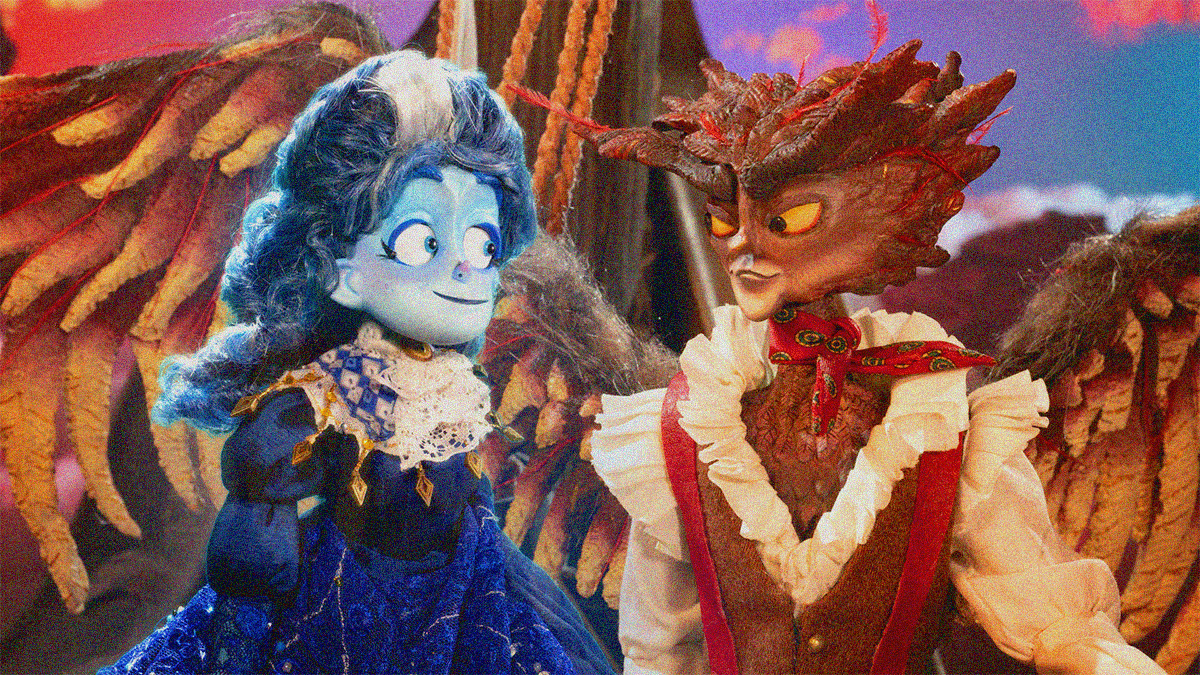
"That [such resonant and timely themes are] at the back of a stop-motion musical only speaks to the relevancy of I Am Frankelda as a piece willing to speak truth to power while still providing an infectious level of fun."
Full thoughts at The Film Stage.
I Live Here Now
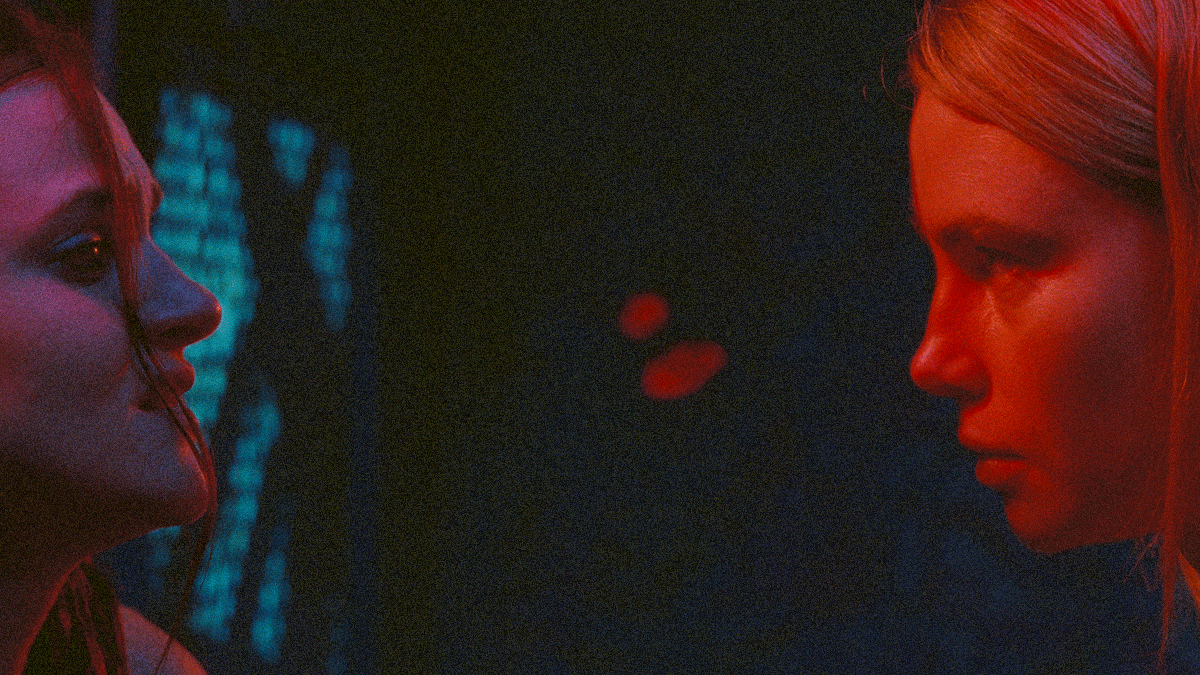
"I Live Here Now never tries to hide its metaphor yet still ensures our interpretation comes from within rather than from the filmmaker. Your mileage may therefore vary, but you cannot deny its power."
Full thoughts at The Film Stage.
Maya, Give Me a Title
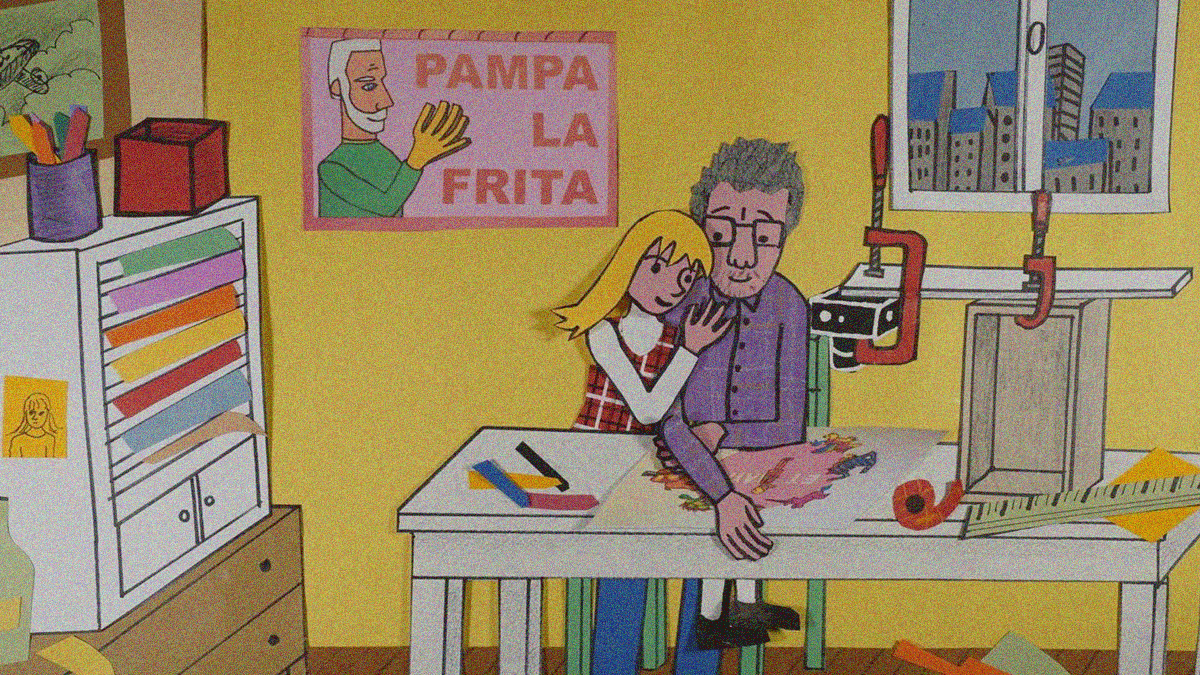
With an ocean (plus a continent) between them, Michel Gondry finds a way to stay engaged with his young daughter Maya via animation. He's in Los Angeles. She's in France. And he finally bought a cellphone. So, he asks her to make up the title to an unwritten story where she is the star and then brings it to life via paper, vellum, and markers. He eventually levels up to a camera/computer rig that allows for full stop-motion devoid of his hand visibly manipulating the pieces and these surreally absurd situations become entertainment for the entire family.
Now, with the hour-long compilation Maya, Give Me a Title, Gondry lets the world enjoy this imaginative exercise too. From Maya roaming the streets during an earthquake to discover its unlikely epicenter to Maya impersonating a police office to arrest cat thieves before being accosted by a giant robot herself, the scenarios become wilder with every seemingly innocuous pitch. Who else but Gondry would take the prompt "Maya takes a bath" and add a shrinking concoction that leads her on an adventure through the drain system?
We receive a handful of examples stitched together by short vignettes of the real Maya furnishing a room with souvenirs from each chapter. The medium itself becomes a character for fourth wall breaking escapes (keep your scissors handy), Gondry interjects (via Pierre Niney's voice) to alter narrative course mid-thought by pushing rewind, and Maya's mother Miriam and grandparents Pampa and Boum Boum make appearances as saviors, accomplices, and/or innocent bystanders added at the eleventh hour. At one point Maya even tries to stop the game before realizing how much she'd miss it.
As a fan of Gondry's work (especially the early music videos and commercials this format most closely resembles), the film proves a wonderful lark. As a family project it was surely a delight to work on and the obvious love that went into it should mean the experience will put a smile on the faces of kids and parents alike. But it is just a collection of individual shorts—skits brimming with heart and humor that tend to bleed into one another once you realize the over-arching gag of the aesthetic is pretty much all it has going for it to non-Gondry family members.
Give me a chapter skip and I'd be more than happy to watch one every now and then when in need of a pick-me-up. I'd gladly put together a YouTube playlist to come back to on my own terms. Being forced to watch it all as a single cohesive whole again would be asking a lot, though. That said, I don't speak French, so the prospect of reading its rapid-fire narration is probably the main detractor. Eye strain was a major problem and demanded I pause after every two or three episodes before reclaiming the enthusiasm necessary to keep going.
6/10
Mother of Flies
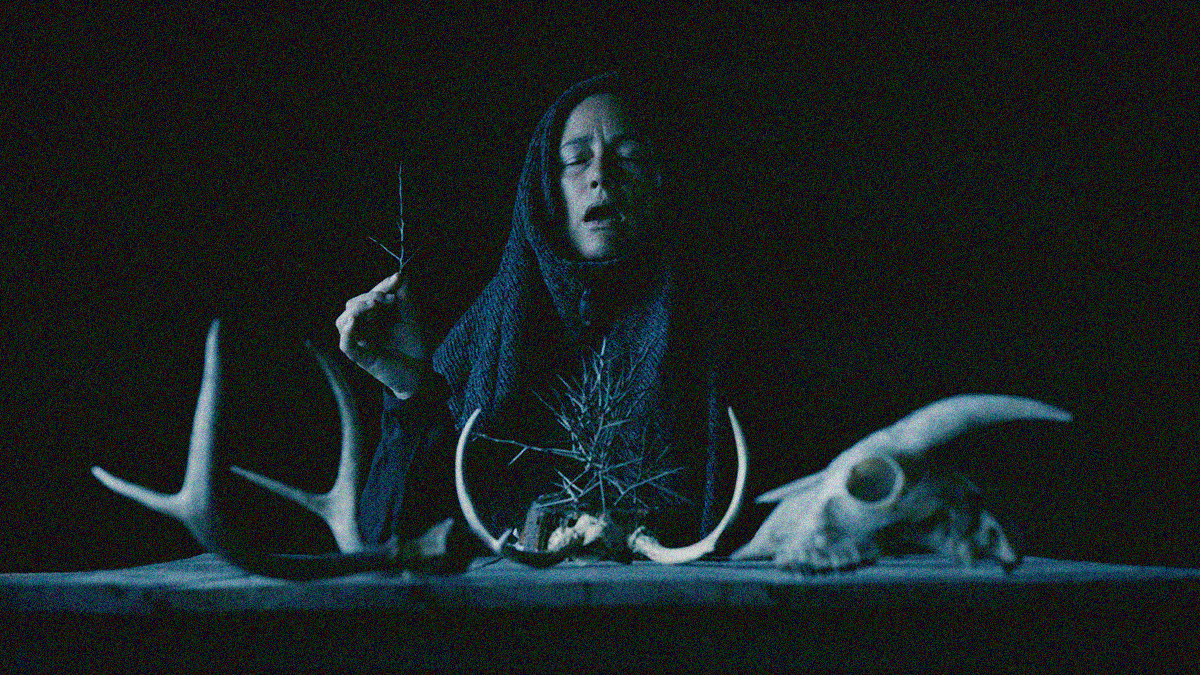
The cancer is back. What had been a fifty-fifty chance of survival the first time around is now a six-months-to-live scenario. So, Mickey (Zelda Adams) is out of options. She must either resign herself to her impending demise or listen to the mystical voice that's infiltrated her dreams. Why not give the latter a shot? If there is literally nothing to lose, who would it harm? Her father's (John Adams' Jake) patience will be tested (he's told her he'll be by her side no matter what she chooses) and Mickey's pain will inevitably increase (she blindly accepted suffering from scientific poison, so magical poison shouldn't detract her), but there's a non-zero chance it could help. Even if just as a psychological placebo.
If you're familiar with The Adams Family's work, however, you'll know they don't wade through supernatural waters without ensuring we understand the magic, evil, or occult avenues traveled are very much real. The question we seek to have answered within Mother of Flies is therefore less about the how and more about the why. Because Solveig (Toby Poser) is definitely not pretending, regardless of whether the rituals she performs will succeed. Everything she says and does creates a physical reaction that goes beyond hallucination, but we don't know if we can trust that it's not making things worse. All we know for certain is that she's using Mickey's illness for personal gain. What that is remains unknown.
The hope is that we'll glean details from flashbacks showing us Solveig at work saving another dying woman. This time it's a mother who will not survive her pregnancy and thus needs this witch to remove the stillborn before it's too late. To our surprise—considering demonic scenes of a blood-soaked Solveig writhing naked in mud—she does save her patient. What's unsurprising, though, is that her smile during the aftermath isn't a product of this victory. No, her grin is directed towards the lifeless child held in her arms. She looks at it as though it's alive. To the young woman's family's dismay, she sees its passing as a silver lining. And why not? Solveig basks in decomposing flesh and maggot colonies. Death is beautiful.
Written and directed by the trio of John, Zelda, and Toby (Lulu Adams eventually appears in an acting role as well), the film presents itself as Mickey's story. She's the one in need of healing. She's the one who drove out to the middle of nowhere to embrace witchcraft. She's the one taking a leap of faith despite never having cared much for the ritual of religion. And yet her position within the narrative is unchanging. Mickey's decision is made before we meet her and she will not waver from its last-ditch effort motivation. She's so committed that she'll send her father away if he dares belittle what it is she's trying to accomplish. Regardless of Solveig being a real witch or her process working, Mickey will live or die trying.
So, our focus must turn towards Solveig as a result. The mystery of who she is. The reactions of townsfolk when Jake mentions her name. The reason why she's willing to help this stranger, seemingly without compensation. Our initial assumption is that it's out of a desire for evil. Like with all such plots revolving around cheating death, it's well-established that a price must be paid. Is Solveig going to take Mickey's soul? Does Jake's presence mean she will kill him to save his daughter? Could it all be a giant ruse to murder them both and use their blood and bones for some other ritualistic manifestation outside the scope of our knowledge? Or, considering the effects of her magic, is Solveig telling the truth and merely in search of redemption?
The slow pacing and circuitous plotting that causes some Adams Family films to lose me is also present here during its middle third, but the final act arrives to give that process purpose by taking us somewhere unexpected. We're meant to be lulled into the security of our genre preconceptions and the notion of dark magic. We're meant to read into the balancing-the-scales trope and think we have it all figured out so that the truth—albeit never hidden—catches us off-guard. Whereas so many horror films lean into the idea that darkness is conquered by light, Mother of Flies posits that the darkness might crave some light too. And, similar to the chemotherapy analogy, why can't the trade be de for life rather than life for death?
To our benefit, we get a bit of both in the end. Yes, there are a lot of demonic earmarks from burning corpses to parasites and the unnatural, but there are just as many examples of love transcending reason too. While he makes light of his answer to Mickey's question about what he'll do if she doesn't survive, Jake tells her without a beat that he will kill himself to make sure she's safe in death as he has in life. That conviction is what drives the film and a trait that Solveig can respect and, perhaps, knows intimately herself. So, rather than always be about an increasing body count and fear of oblivion, the Adams Family uses their horror to decrease it by reminding us witchcraft mustn't always be evil.
7/10
Peau à peau
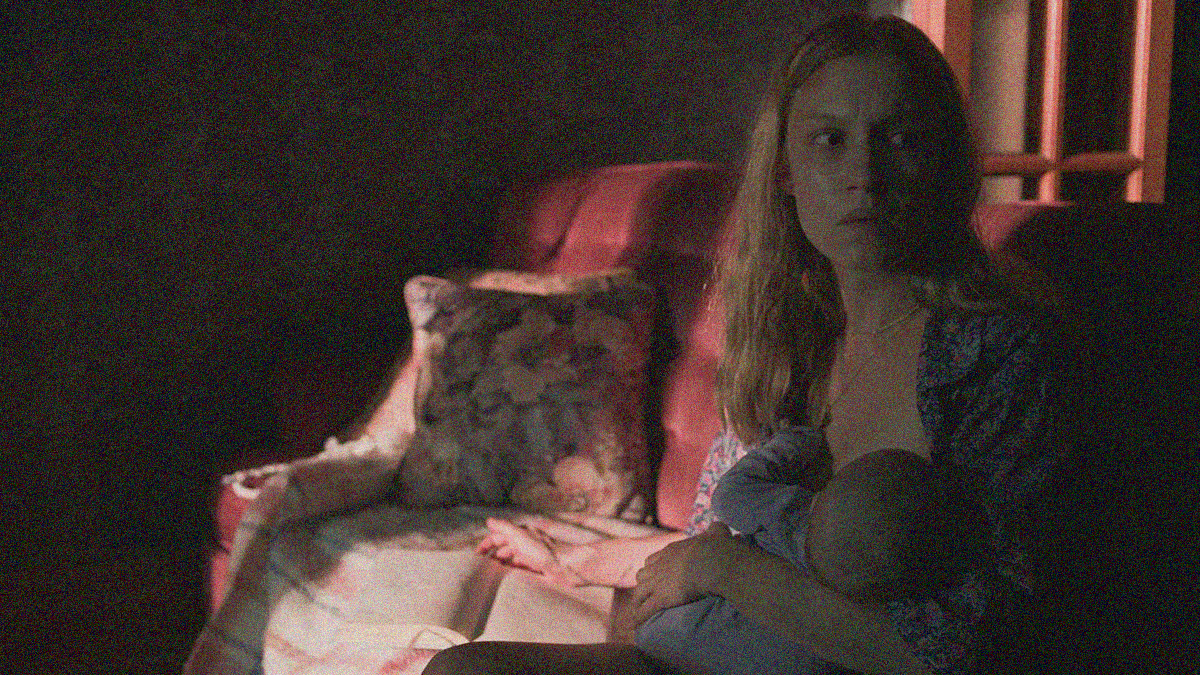
Chloé Cinq-Mars's Peau à peau begins as a postpartum drama. Despite nursing little Lou every three hours as advised, Pénélope (Rose-Marie Perreault) can't seem to get him to put on weight. The doctor wonders if there's been any additional stress or a change in her routine and Pénélope can't help but answer with a sarcastic "I had a baby." What else is she supposed to say? The baby is why she's up all night. Her boyfriend (Simon Landry-Desy's Gaspard) is too stoned to take a turn ("you need to breastfeed him anyway). Her parents and mother-in-law don't seem willing to help. She can't get out of the house to work. And the pregnancy was so difficult she almost died.
There's more to the tension in Pénélope's life than motherhood, though. More too than surviving a convenience store robbery in which she ignored the gun-toting criminal's demands to get on the floor so she could protect her baby instead. You see, Peau à peau is also a ghost story. Because everywhere Pénélope looks, a vision of Charlotte (Marie Bélanger) manifests. First, it's a product of confusion wherein she recognizes this figure from her past in other people. Then it's a trick of the camera with Cinq-Mars adding her reflection in mirrors or glass that Pénélope is passing. And once we learn about her identity, Charlotte becomes a harbinger of death whose presence places Lou's life in danger.
This duality allows the film to tread through horror tropes as more than merely metaphor. While Pénélope's gradual descent into psychosis would still work on a purely poetic level, Charlotte adds another layer of mystery for the audience to question everything we've seen as supernatural. We know Charlotte is the reason Pénélope decides to reconnect with Edward (Saladin Dellers) after so long. Seeing her conjures memories of better times and her current struggles with Gaspard beg for the comfort of familiarity. But she's also why the prospect of mice roaming the house puts her into sensory overload. This isn't something we know straight away, but its truth reveals that a lot more might be a result of Charlotte too.
Pénélope's anxiety isn't therefore just resentment towards the child who has thrown a wrench in her life. It's also a product of whatever emotions have wrapped themselves around this ghost. Is it guilt? Longing? A bit of both? Why does she begin to not only fear Charlotte's presence, but also the idea that she might take Lou away from her? This is the wrinkle that sets Peau à peau apart from others with similar subject matter because the situations where Pénélope puts her baby in danger are more often than not an attempt to keep him safe. She leaves him in the bathtub to ensure Charlotte isn't the voice she hears outside. She places him in the car because the house isn't secure.
Our investment is therefore two-fold. We're watching to see if Pénélope can dig herself out of this psychological hole before crossing a point of no return and to find out what actually happened to Charlotte. Something within the former's mind is connecting Lou to the latter both as a surrogate and target. So, we can infer these young women shared a deep bond and can presume the topic of safety is a connection since Lou (and Pénélope) barely survived their trauma while Charlotte couldn't survive hers. And then there's Gaspard treading water as far as what to do. Despite him being a full liability Pénélope would have been correct to ditch at the beginning, he does embrace his responsibility just in time.
Cinq-Mars is patient with her reveals so that the film almost unfolds in chapters. The first shows us that Pénélope is a good mother despite what she might think while Gaspard repeatedly lets her down and Edward presents a path back to joy. Then, with the reveal of a photograph, that path transforms into a place to hide. Everything begins to darken and the reasons for Pénélope's actions change under that dimming light of recognition. And, just when Gaspard reappears as a potential savior, Pénélope descends further into paranoia as though things finally starting to turn a corner means the horrors of her mind are given room to expand. There can ultimately be no future without first confronting the past.
7/10
Redux Redux
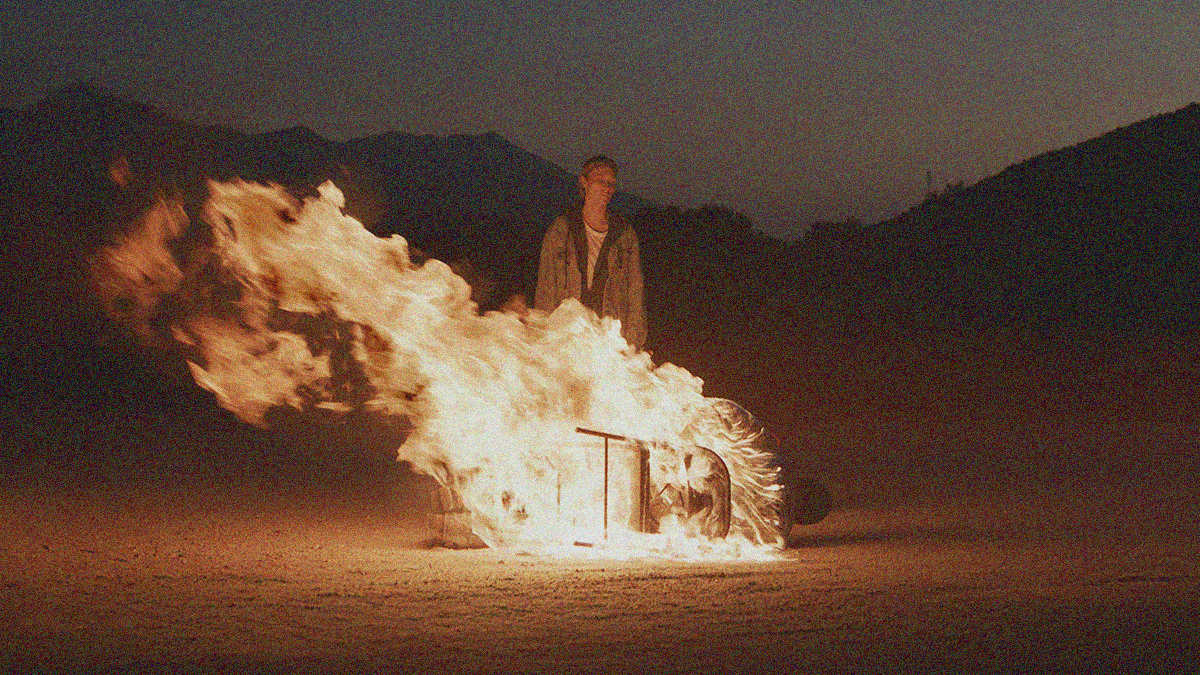
It doesn't matter where Irene (Michaela McManus) got the metal, coffin-like device that allows her to travel between parallel worlds across the multiverse. Because rather than concern itself with the machine's origins or technological significance (although writers/directors Kevin and Matthew McManus, Michaela's brothers, do eventually supply a bit more lore to add another layer to the plot's suspense and stakes), Redux Redux concerns itself solely with reason Irene has been using it for longer than she can remember. This is a grieving mother who lost her only child to a brutal act of violence. A woman who's made it her life's mission to confront the culprit, inquire about her daughter's body's whereabouts, and kill him without a shred of remorse in every single dimension that exists.
We meet her standing against the title as Neville (Jeremy Holm) burns to death while tied to a chair on the ground. We watch as she barely escapes his chokehold to smash his head beneath a bed frame. There are gunshots. Throat slashes. Suffocations. Irene never fails in this mission because she knows everything there is to know about this monster from where he works, when he gets paid, where he lives, and the places he goes to hide. It's been thousands of worlds over multiple years and there's no sign of quitting. Not when he roughs her up in the lead-up to taking his last breath. Not when the police arrive to ignite a race against time back to where she's left the machine for a quick escape. Irene is a literal Terminator ensuring that her figurative John Connor never hurts another girl again.
When you do something for this long, however, an unavoidable alteration is bound to occur. The hope is that it takes the form of a dimension where her daughter wasn't murdered, but it's beginning to look like that ship has sailed. Every Neville that Irene finds still has a lock of her Anna's hair inside his trophy box and, since she isn't traveling through time, more bodies will inevitably pile up in those worlds where he remains alive and active. Anna was #11. We see a lock labeled #12. So, Irene will eventually find that box with a #13 since the multiverse is infinite and she'll never reach an end to her journey. What she couldn't have expected is finding that victim while she's still breathing.
The machine is therefore the hook. Revenge is the purpose. And fifteen-year-old Mia (Stella Marcus) is the chance at redemption. That's why we meet Irene now and why this chapter in her story is the one worth telling. Because she's long since forsaken her humanity. Beyond a pattern of finding Jonathan (Jim Cummings)—a man she can rely on in every universe—to provide companionship when needed, there's zero interaction with anyone but the people in a position to point her towards Neville. Not even Mia can shake her from that apathy. Sure, Irene is glad she was able to save her, but that's as far as it goes. She still has a man to kill and a trip to take so she can do it all again. But what if she could stop?
It's the perfect match: a mother without a child and a child without a parent. Both have given up on the prospect of love. Both resent the world for dealing them the worst hand it possibly could. And it's not like Irene is looking to replace Anna—far from it. Nor is Mia desperate for a mother. This is more about seeing themselves in the other than it is someone to fill a void. It's Irene seeing the lost and angry soul that ultimately set her on these train tracks to oblivion and Mia seeing the strong, badass woman her own surly attitude craves to become. That's why the former doesn't want to ruin the latter by taking her along and why the latter wants nothing more than to follow the former to enact her own vengeance.
Except, of course, that's not quite the truth. They might be inured to their current, dismal lots in life, but that doesn't mean they wouldn't both jump at the opportunity to jump off if it was safe. It all comes down to trust, though. Trust in each other to think their support could make it possible. Trust in themselves to even believe they deserved a second chance. Because they have each relied only on themselves for as long as they can remember. Mia has been in the foster system since she was four and it's not difficult to imagine Irene's been killing Neville for a decade too. That's a lot of time, resentment, and mistrust to expunge. So, they'll ultimately do whatever they can to push the other away first instead.
As such, despite the science fiction premise and pulpy violence, this is first and foremost a character study. It's McManus and Marcus providing authentically complex performances that refuse to shy from the survival instincts they've grown comfortable relying upon—impulses that render everyone around them expendable and this new partnership instantly disposable if pressed against a wall of the other's (or their own) making. Add some great points of support and conflict (via Dendrie Taylor, Ely Henry, and Taylor Misiak) that can't help but end in fireworks and a formidable Holm as the forever-dying-but-never-gone target of their ire and it's impossible not to invest in their shared journey to reclaim the vulnerability necessary to allow themselves the room to love again.
9/10
Terrestrial
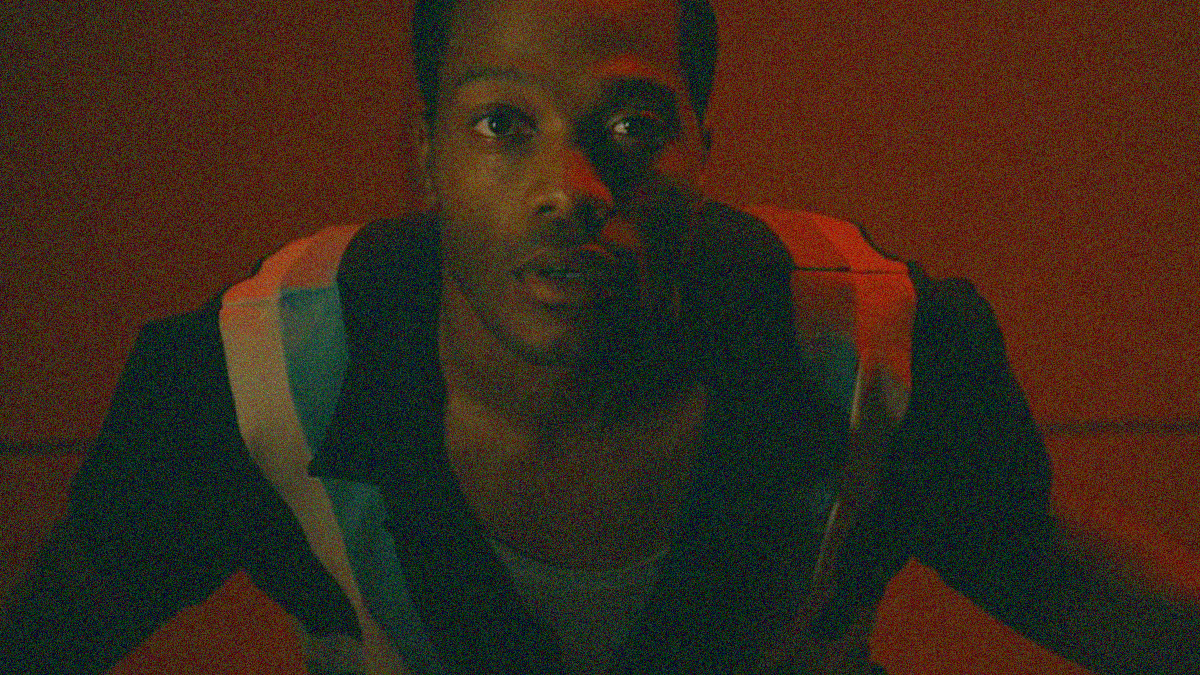
"I love the willingness to go for the jugular and really push this character to a point of no return as far as being unable to accept what he has wrought. It provides Fowler a great acting showcase."
Full thoughts at The Film Stage.
The Well
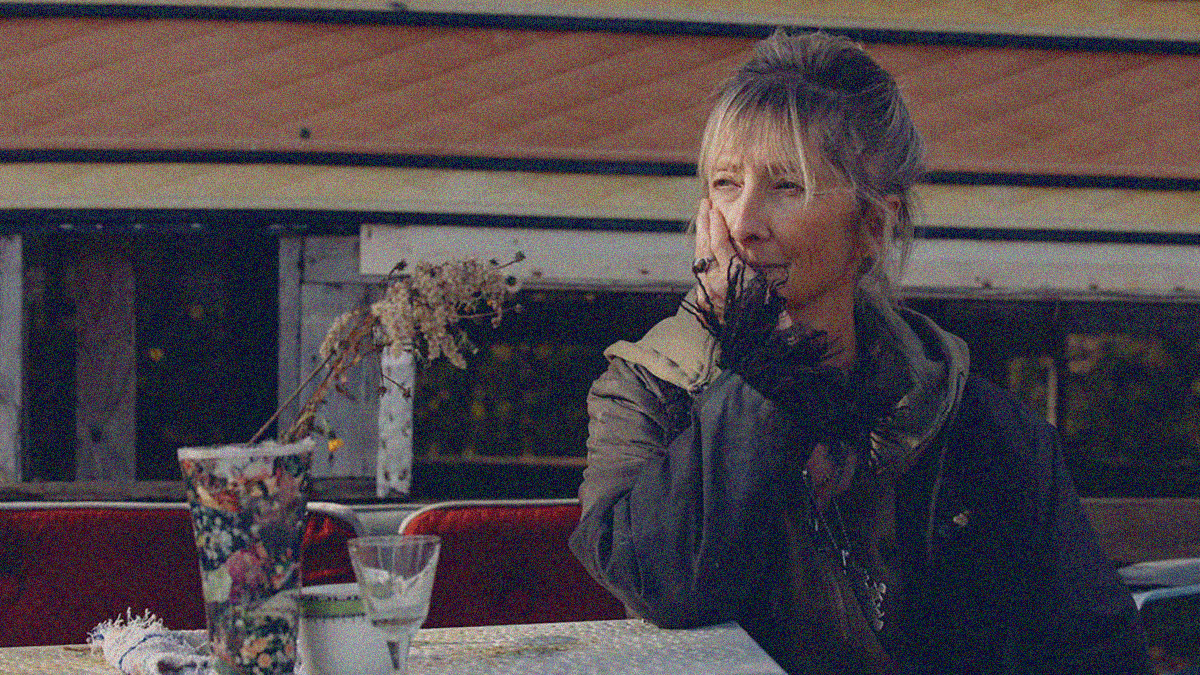
Like most post-apocalyptic thrillers, civilization as we know it has ended in Hubert Davis' The Well. A mysterious illness took over and infiltrated all natural waterways. One sip from a river of what still appears like fresh water and you're dead within twenty-four hours. First comes the fatigue. Then the skin lesions. So, newcomers to any government camp or makeshift shanty town know to strip and prove their health. From there it's just a matter of hoping the community you've entered can be trusted to have the group's wellbeing in mind rather than a selfish leader looking to be the last person on Earth. Because being lucky to get a thimble of water a day ensures greed becomes an easy sin to embrace.
It's why Kathleen Hepburn and Michael Capellupo's script introduces the Devine family first. Sarah (Shailyn Pierre-Dixon) and her parents (Joanne Boland's Elisha and Arnold Pinnock's Paul) live deep in the forest on her grandparents' old land. Hidden beneath a leaf-covered tarp in the backyard is a well. If they empty a bucket a day, they can keep around a week's worth of water stored for drinking, eating, and any potential emergencies. The trio survives off the land otherwise and Paul tells Sarah stories she missed by not having school. Sometimes they'll even reminisce about the days before infection took hold, but never about the brother whose tragic end has her wondering if the wrong child died.
As fate and narrative conflict would have it, a stranger stumbles onto their property days before their water pump breaks. Despite initial skepticism, this young man (Idrissa Sanogo's Jamie) proves himself to be a figure from their past and someone who knows where to find the materials necessary to bring the well back online. The past is the past, though. Yes, it makes sense that Paul's plan might be outdated when compared to Jamie's alternative considering he's been roaming much further than them, but can he be trusted? Thirst and a mortality laid bare can turn even the closest of souls against each other under certain circumstances and the Devine's well is too big a secret to risk on hope.
So, let it be subterfuge. Let Jamie take us through the forest so we can experience what else is out there via Sarah's tag-along. It's about paranoia now. Manipulation. It's meeting kindly people like Wanda (Natasha Mumba), Milly (Noah Lamanna), and Gabriel (Sheila McCarthy), yet being uncertain about whether their smiles are genuine or a façade to draw you closer before an attack. Because Jamie knows these people and even he sets ground rules for Sarah to follow his lead and not give any real details about who she is or where she's from. It's one thing to trust someone in power to keep you alive for the price of fealty. It's another to pretend they wouldn't turn on you the second their control becomes threatened.
Add Gabriel's brother Walter (Steven McCarthy) to the mix and allegiances are quickly exposed to combat any suspicious behavior. Sarah is nothing if not suspicious regardless of the hard to believe story about Jamie just happening across her alone in the woods. Not to mention that he has been gone long enough himself for them to assume he had reason not to return. What's the game then? Can their dwindling water supply afford another mouth? Suddenly, each of them is on-edge waiting for the other shoe to drop. Will Sarah and Jamie unleash their dastardly plan? Will Gabriel's flock swarm and set an example by punishing the newcomer? Will Paul, desperate to find his missing daughter, find them?
The Well doesn't necessarily travel new road within the sub-genre (it wasn't too long ago that It Comes at Night proved a contemporary high-water mark), but it executes the template effectively. Pierre-Dixon and McCarthy are a huge part of this since their respective traits of unwavering compassion and sweetly callous pragmatism create a perfect contrast with which to balance the drama. Because while it is fear that keeps these people under Gabriel's foot, they've been in survival mode too long to admit it. They label it loyalty. Service. They've only experienced worse at the previous camp and can't fathom better. Not until Sarah arrives with a purity of kindness that reminds them another way still exists.
That revelation demands Davis and company provide a conveniently cruel encounter to shake the tree in a way that could force them all to bend their heads lower as easily as embolden them. It's abrupt but necessary. So too are Paul's exploits. These aspects overtly set the stage for what's to come—a climactic moment no less resonant for its obviousness—and make it so the whole hinges on Sarah's emotionally charged, two-pronged coming-of-age and survival journey. Everything else works towards giving her the strength to show mercy, trust the unknown, and allow hope's potential liabilities to overcome paranoia's dubious security. And the film looks to remind us to aspire to be the martyr whose sacrifice saves another rather than the killer quick to sacrifice another for themself.
7/10

Oh, Hi!
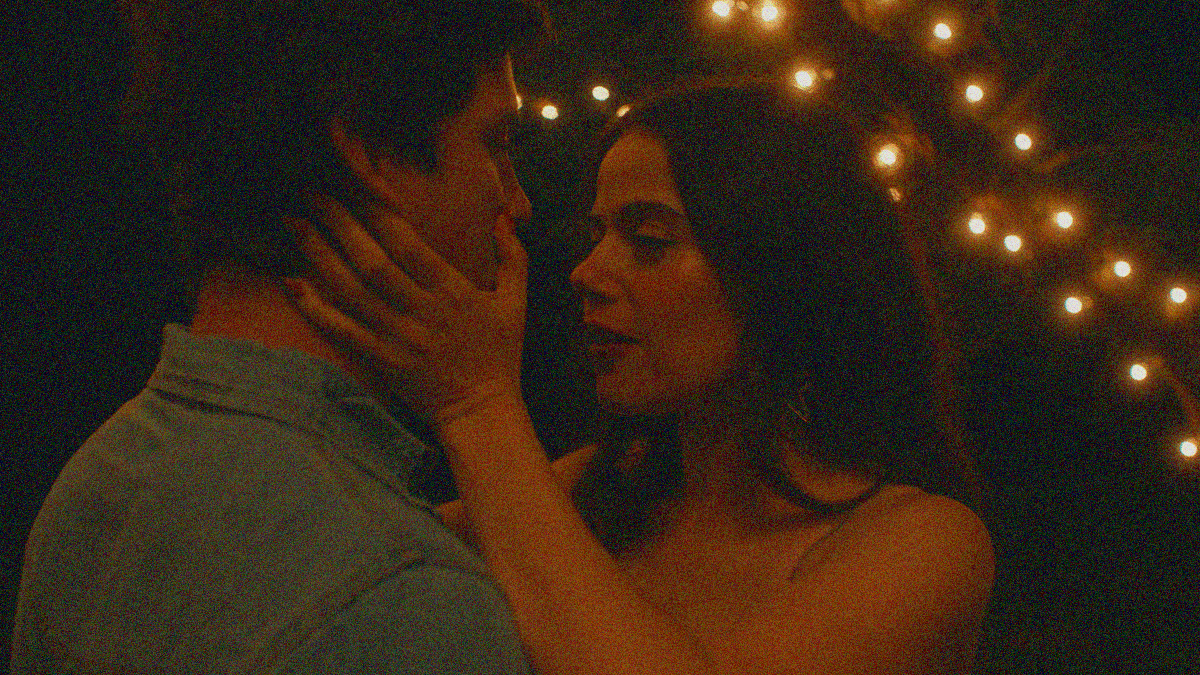
It's tough to pinpoint the strength of Iris (Molly Gordon) and Isaac's (Logan Lerman) relationship at the start of Sophie Brooks' Oh, Hi! The sexual chemistry is obviously dialed to an eleven, but that doesn't mean much. So, we must look at other details. The fact they're driving to a very nice forest retreat in High Falls for a romantic weekend getaway definitely feels like they've been together for a long time, but the questions and revelations sprinkled throughout their conversations skews sharply in the opposite direction. The only thing we know for certain is that they're a couple who enjoy each other's company and look to have a bright future ahead of them. Unless that's not true either.
Written by Brooks (from a story by her and Gordon), the film unfolds with two obvious wrenches built-in to upend whatever expectations you had prior. I should probably say three considering we catch a glimpse of the plot's mid-point at the very beginning before rewinding thirty hours, but I'm going to consider that a tease of the second rather than its own. And since I don't want to give anything away, I'll just say these pivots are crucial to the script's success because they ultimately supply the major conflict points necessary for narrative tension. Things are going so well during the first act that we're desperate for a record scratch to jolt us into a state of having absolutely no idea where we're going.
These are big swings. Not just to subvert our expectations, but to shift from the cutely absurd to the unbelievably absurd. Because it's one thing to be making out in the water only have a monotone David Cross yell at you to stop having sex in public. It's another to find yourself caught in a manic episode of incredulity that forces you to spiral into committing a crime under the auspices that it's akin to playing an icebreaker game. That's the thing about these wrenches: they're less about the revelations halting the current tonal momentum and more about the crazy responses made to those revelations. It's as though Brooks and Gordon kept asking themselves, "How can we make this scenario worse."
While I'd say they found the sweet spot needed to balance the implausibility of actions with the emotionality of situations more often than not, the times they miss do feel more impactful via their tendency to subdue our enjoyment. It's like what Kenny (John Reynolds)—boyfriend to Iris' best friend Max (Geraldine Viswanathan)—says about our brains remembering danger triggers quicker and longer than pleasure triggers. I was laughing and wincing in the best ways when Iris starts to spiral, but it's not long before that premise begins to spin its wheels. The same goes with the introduction of Max and Kenny. They're a welcome addition to spice up the drama and comedy, but the joke wears thin.
Oh, Hi! is thus a case where a sound premise is letdown by execution. Not because where Brooks takes us doesn't work, but because those two left turns are never truly expanded upon beyond their initial slap to the face. The hope is that having the characters keep talking and creating new ways to remind the audience how wild the current circumstances are will sustain the effect. Unfortunately, the sting always fades about halfway before the next smack. Boom! We're awake. We embrace these lovers' difference of opinions transforming into felonies and then realize everything has become about stretching the joke rather than enhancing it. Then ... boom! We're awake again. The fun is back. And then it's gone.
That's the trouble with a two-hander. The dynamic must be changed. One character cannot wield all the control for the duration. Yes, the other implies a shift in control, but, because they are at such a large disadvantage, showing that power only guarantees the first will never risk actually letting them prove it. This is why Max and Kenny become unavoidable. If you can't change the dramatic energy between your two main characters, you must add more to at least shake things up. And when that inevitably runs its course, all you have left is to end the charade and see where the chips fall. To the film's credit, the end works great.
It renders the whole a tough one to pin down as a result. I loved the parts I loved and I was bored by the parts that added nothing to the central question behind the former. Who is at fault? The easy answer is Iris considering what transpires, but that doesn't absolve Isaac from helping to create the situation that provokes her. I almost wish we just spent the duration with them talking it out. Still give us those first twelve hours of her dumping her entire life history on him while he stares at the clock, but then give us the heartfelt introspection that arrives at the very end in a way that lasts forty minutes instead of five. The absurdity might be fun, but Gordon and Lerman's shared complexity is what intrigues.
6/10
The Old Guard
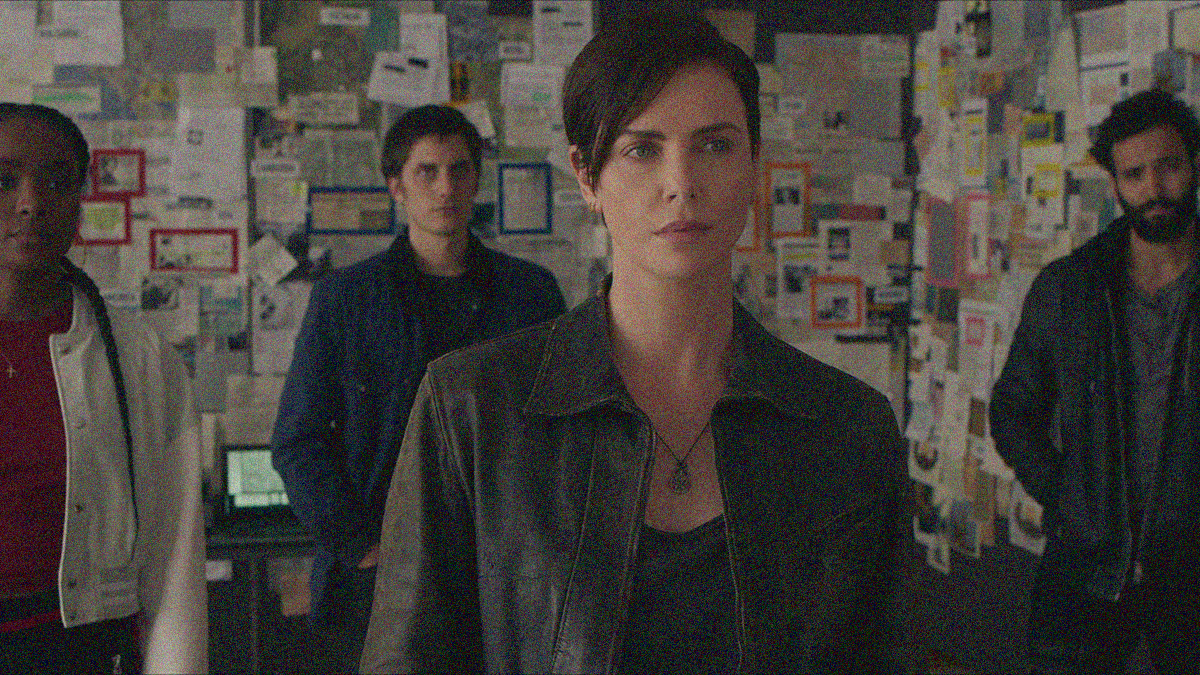
Here’s a little immortal lore to spice up your familiar “leave no man behind” action narrative. You get your newbie avatar. Your cynical leader primed for a potential rejuvenation of purpose. And the merry band of wife guy men in tow.
It’s fun. Has some decent stakes. Supplies a villain even a mother could hate (if she abhors the fact his whole faux “greater good” philosophy is a paper-thin mask for sadism). And, as a counterpoint, there’s the well-meaning accomplice who’s so desperate to fulfill his dream of eradicating suffering that he blinds himself to the heinous suffering his own actions cause.
Gina Prince-Bythewood does well to weave through the tonal shifts while also keeping the action fast and unrelenting. And the great cast rapport she fosters goes a long way towards endearing us to the leads as humans above heroes. Because there’s nothing like some effective sibling-level needling and love to recruit us to their cause.
7/10
The Old Guard 2
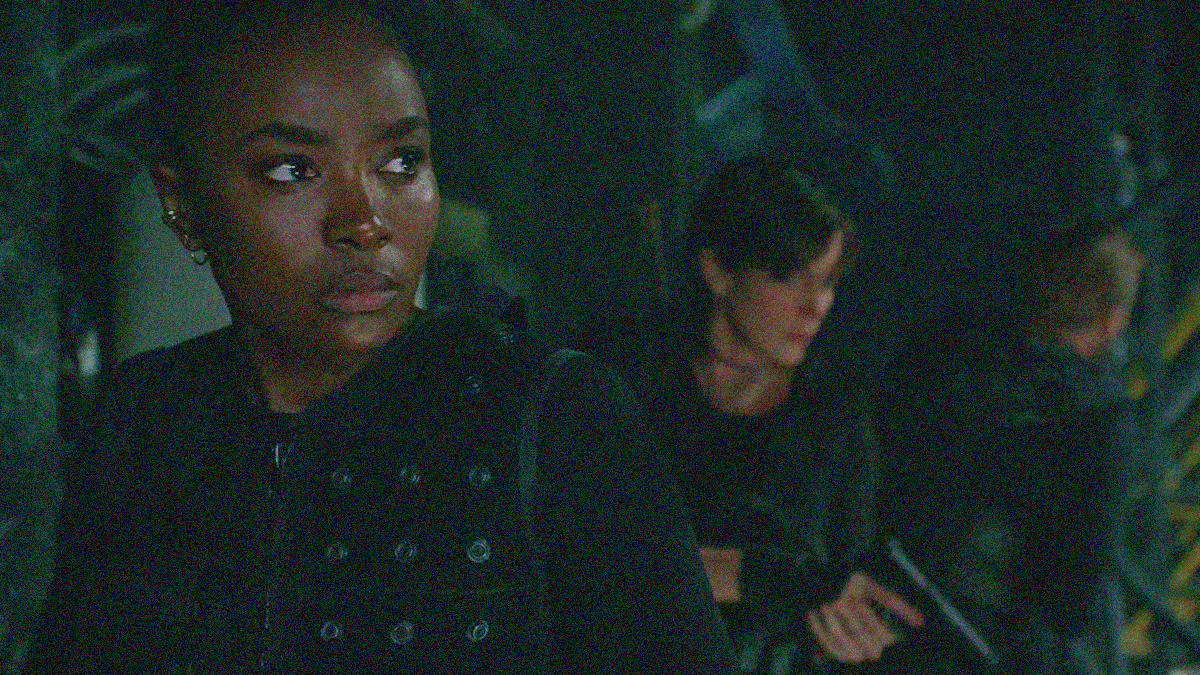
Here’s a ton of lore to pretend like we have a semblance of a plot despite really just needing to burn tens of millions of dollars for our shell game of a studio’s implausibly backwards financial system.
Let’s bring the whole cast back, integrate a new famous face as the villain with only two minutes of exposition before expecting the audience to care about her place in the story (as well as an out of nowhere ally just as thinly drawn for balance), and slow down the hand-to-hand combat so far that it’ll appear as though we ran out of time and needed to edit in rehearsal footage. Undercrank the film or something!
A wild step down from its predecessor in quality, purpose, and especially continuity. ‘Cause Andy’s first knife wound healed just fine. It was the gunshot that caused a problem. Really makes you wonder about the conjunction use between Greg Rucka “and” Sarah L. Walker’s names denoting a rewrite. Was his script so bad that this barely half-of-a-film result was the best they could salvage? Or was this stinker the product of a complete retool that legally demanded Rucka’s credit remain regardless? Not great either way.
3/10
Shoshana
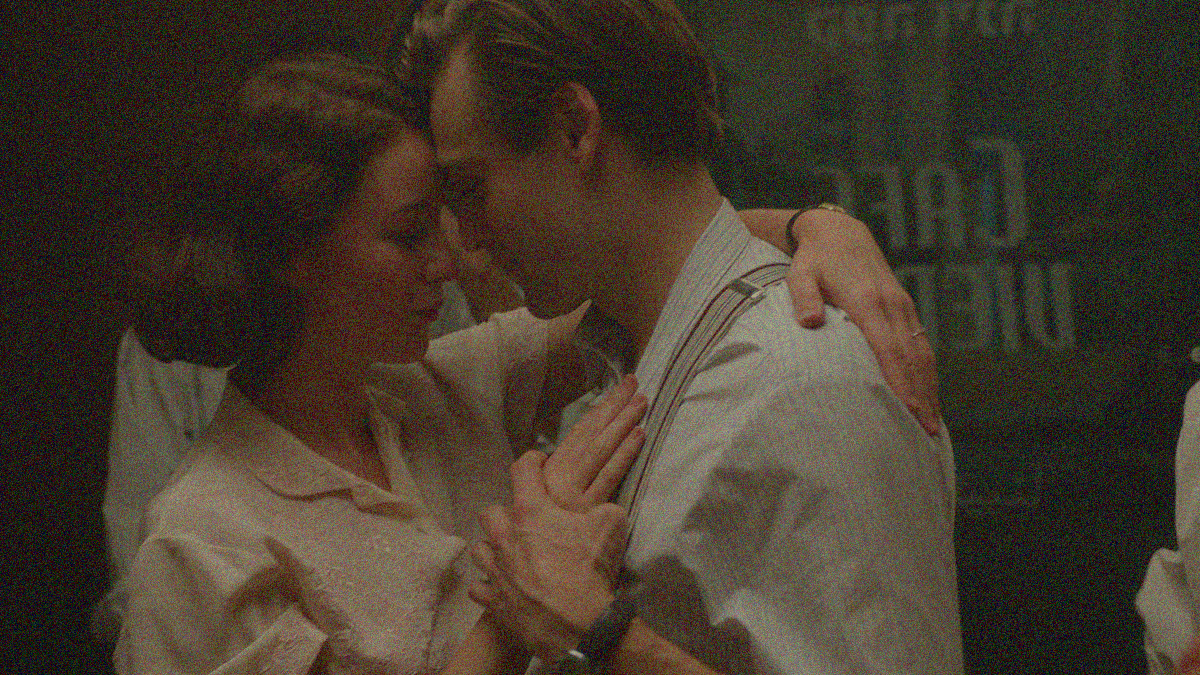
The hypocrisy is the point. At least that's what I'm taking away from Michael Winterbottom's Shoshana. It's a necessity considering he, Laurence Coriat, and Paul Viragh don't afford the Palestinian Arabs within their story the same complexity they give to the Zionists. They intentionally keep them at a distance in order to hope no one notices instead. Because, to their credit, it is made quite clear that this was a region occupied by Arabs for thousands of years before the Treaty of Versailles ceded Palestine to Britain control in 1919. That's when Jewish immigrants began arriving by the thousands. That's when the Zionist movement dug in. That's when it became a war between "terrorists" and "assassins."
Rather than give credence to the notion that Palestinian Arabs have a claim on this land and have been acting on self-defense ever since, Winterbottom and company use this fact to muddy the waters of what becomes a war pitting Zionists against Britain. They set this stage so an exchange between Avraham Stern (Aury Alby), leader of Zionist terrorist organization Irgun, and Geoffrey Morton (Harry Melling), newly anointed leader of Britain's Tel Aviv office, hits with an appropriate dose of that aforementioned hypocrisy. These are two psychopaths going toe-to-toe to smugly state their entitled authority over Palestine. Two foreigners leading opposing occupying forces caught within a drama that all but forgets the Arabs trapped beneath their feet.
The question is therefore whether you can fully judge Shoshana without weighing this omission. Should you fault it for what it never sought to be if it succeeds at telling its intended narrative? I believe it being a true story with real life characters means you should. Especially since the duality supplied to the Zionists (one faction fighting for a Jewish state that would allow Arabs independence while another faction seeks spilling as much blood as necessary to claim it all for themselves) is not afforded to the "violent Arab rebels" mentioned only at the start (to contextualize Zionist revenge bombings) and the end (as enforcers of a Holy War once the partition is announced). Despite that foundation of Palestinian displacement, they still get reduced to aggressors.
As for the narrative presented removed from this glaring reality: it is well told. Split between the vantages of the titular Jewish socialist Zionist Shoshana Borochov (Irina Starshenbaum) and her British detective lover Thomas Wilkin (Douglas Booth), we're given a history lesson of this period in Palestine's history. There's the nuanced police work of Wilkin understanding the rebel group Shoshana aligns with is on his side as far as stopping Irgun's bombings. The nuanced philosophy of Shoshana holding her activist father's Zionist ideal of a shared Palestine while her brother joins the Irgun and her friends question her allegiance. And the muddied water Morton splashes over both with his binary approach of shutting everyone down to assert British dominance.
It's a multi-faceted espionage thriller beneath a front-facing romance that reveals as much compassionate empathy at the start as it does radicalized violence by the end. Because while the constant threat of Shoshana and Wilkin needing to both eventually "choose a side" is presented as one where a third might reveal itself to be love, that's not the case. Love is simply used to accept the other's problematic loyalties to remain together. It's their respective sides that will ultimately choose once it's learned that this sort of ideological and myopic war isn't conducive to love. Not when you're willing to kill without due process, sacrifice women and children, or cut bait and leave if the cost outweighs the benefit.
I enjoyed Starshenbaum and Booth's performances as they juggle desire with duty. But it's the history lesson that truly captivates. Stern's capture and release. The Irgun and British truce once World War II breaks out. The fracturing of Irgun into the even more extremist Lehi. It's a fascinating evolution in clandestine warfare that parallels Britain's goal to control Palestine with the Zionist's goal to undermine them and do the same. Winterbottom does well to maintain his plot's numerous spinning plates by filtering everything through Shoshana and Wilkin's lens. And the moment it all comes crashing down, the truth is exposed: compassionate colonization is a myth. Genocide will always be inevitable.
6/10

This week saw I'm Still Here (2024), Matchstick Men (2003), Preacher's Kid (2010), Scary Movie V (2013), and The Starving Games (2013) added to the archive (cinematicfbombs.com).
Nicolas Cage dropping an f-bomb in Matchstick Men.

Opening Buffalo-area theaters 7/25/25 -
• Bambi: The Reckoning at Regal Galleria, Quaker
• The Fantastic Four: First Steps at Dipson Amherst, Flix, Capitol; AMC Maple Ridge, Market Arcade; Regal Elmwood, Transit, Galleria, Quaker
• Hari Hara Veera Mallu Part-1 Sword vs Spirit at Regal Elmwood
• The Home at Regal Elmwood, Transit, Galleria, Quaker
• House on Eden at Regal Elmwood, Transit, Galleria, Quaker
• Maareesan at Regal Elmwood
• Oh, Hi! at North Park Theatre (select times); Regal Elmwood, Transit, Galleria, Quaker
Thoughts are above.
• Shoshana at North Park Theatre (select times)
Thoughts are above.
• Sorry, Baby at Regal Quaker
• Summer Wars 4K at North Park Theatre (select times)
• Thalaivan Thalaivii at Regal Elmwood
Streaming from 7/25/25 -
• Death of a Unicorn (HBO Max) - 7/25
• Happy Gilmore 2 (Netflix) - 7/25
• Monster Island (Shudder) - 7/25
• The Phoenician Scheme (Peacock) - 7/25
• The Penguin Lessons (Netflix) - 7/26
"It’s an inspiring story on all fronts. [But] considering what’s happening in our world—specifically America with its own broad and illegal renditions—it proves performatively quaint. That’s the mission, though. Say something, but not too much." – Full thoughts at HHYS.
• Trainwreck: Storm Area 51 (Netflix) - 7/29
• An Honest Life (Netflix) - 7/31
Now on VOD/Digital HD -
• 40 Acres (7/22)
• Dangerous Animals (7/22)
"While the film doesn’t deliver much that other shark horror hasn’t already supplied, the characters possess the goods to make us forget each new plot progression is a familiar check stop upon a well-worn trope." – Full thoughts at HHYS.
• Daniela Forever (7/22)
"What makes the film so captivating is that Vigalondo doesn't shy away from the truth that there cannot ever be just one difference [between fantasy and reality]. Not when this parallel world is solely of Nicolás' making." – Full thoughts at The Film Stage.
• The Hobby: Tales from the Tabletop (7/22)
• Lilo & Stitch (7/22)
• Magnetosphere (7/22)
• Materialists (7/22)
• On the Fly (7/22)
• The Quiet Diplomat (7/22)
• Rock, Paper, Death! (7/22)
• Sunlight (7/22)
"And all the while Conti and Allen refuse to turn Jane and Roy’s pain into the punch line. Every joke is instead born from the humanity their torment has yet to fully defeat." – Full thoughts at HHYS.
• Et Tu (7/25)
• Four Letters of Love (7/25)
• Last Swim (7/25)
• Osiris (7/25)

Pieces from the Scream (1996) press kit.

